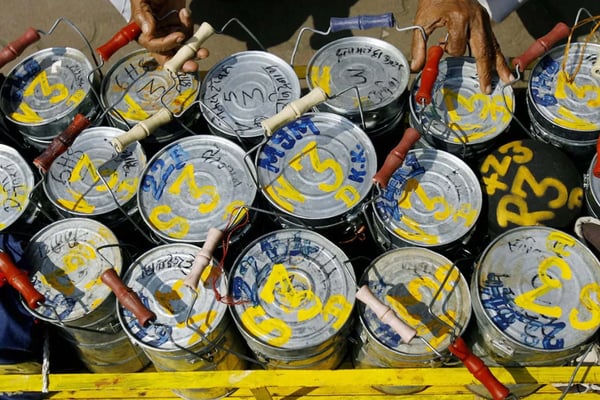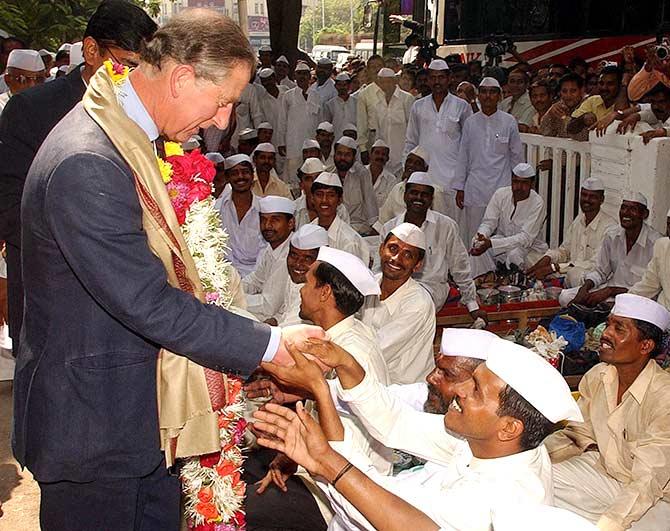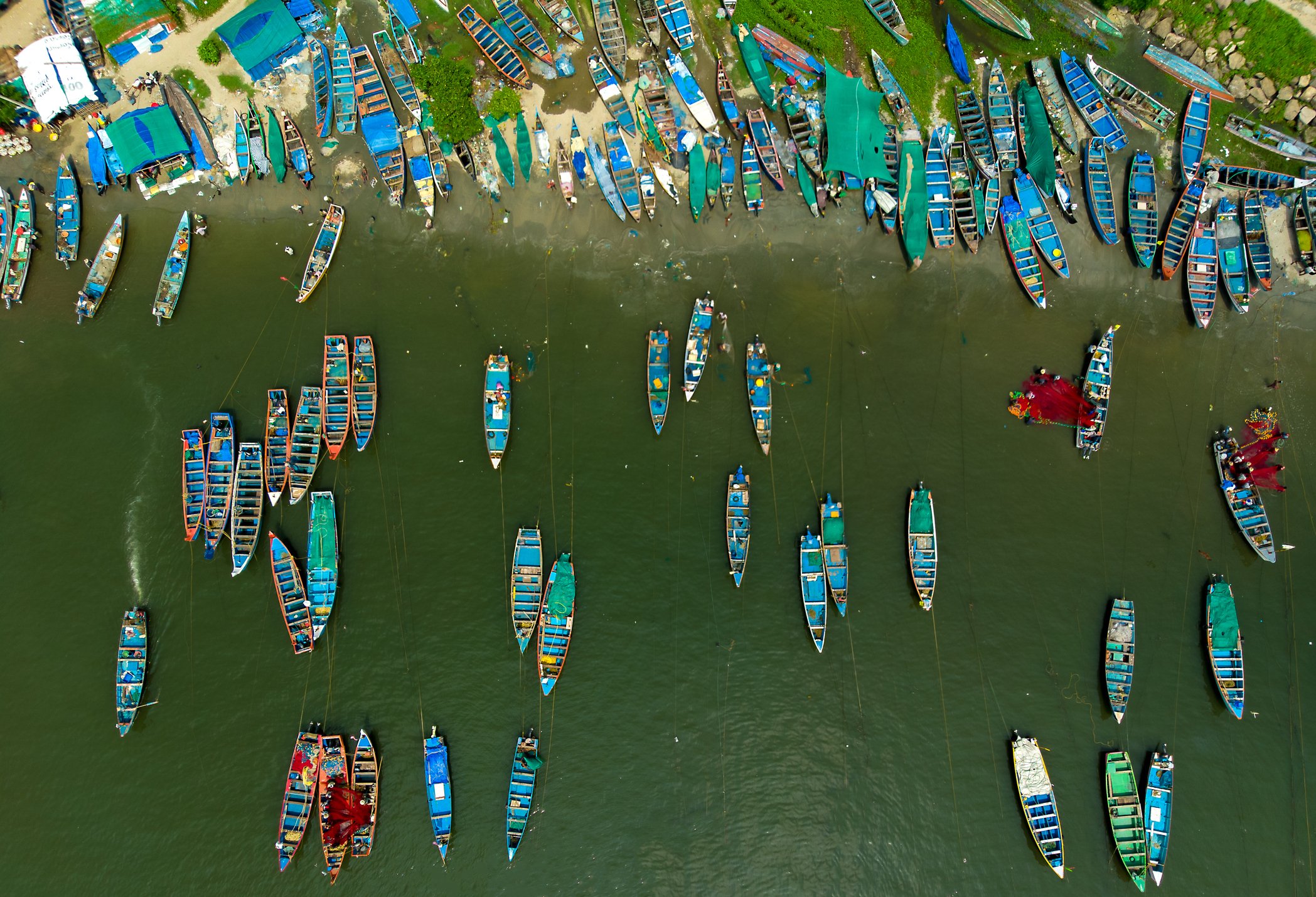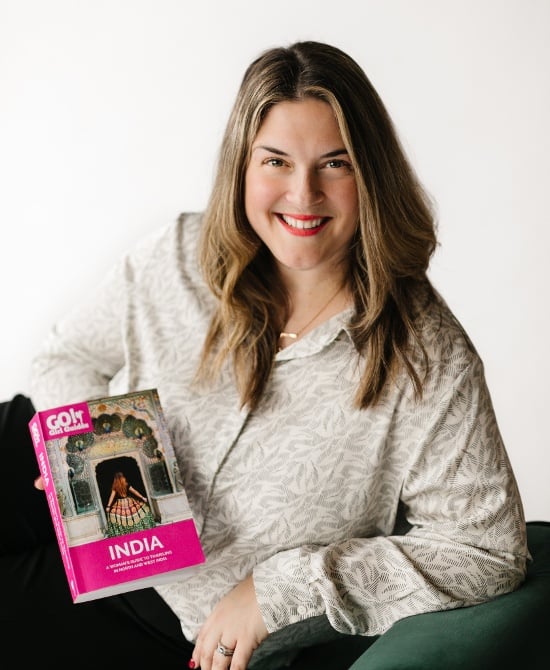Dressed in white outfits and traditional Gandhi caps, an army of 5,000 dabbawalas fulfill the hunger of almost 200,000 Mumbaikars with home-cooked food. The Dabbawalas, also called the Lifeline of Mumbai, deliver meals from a customer’s home to the offices and then return the Dabbas (metal lunch boxes) back on the same day. The “meals-on-wheels” organization is best known for its gritty resilience and undying synergy.

It all started in 1890.
130 years ago, when a Parsi banker named Mahadeo Havaji Bachche wanted home cooked food, he enlisted the responsibility to the first dabbawala. Others took notice and the demand soared. Bachche informally attempted to unionize the dabbawalas in 1930. In 1956, a charitable trust was registered under the name of Nutan Mumbai Tiffin Box Suppliers Trust. In 1983, the dabbawalas moved to a profit-sharing model. Each area is now managed by groups averaging 25 members who manage their own operations and finances.
They went on strike only once.

The dabbawalas have been conducting their uninterrupted services for the last 120 years. They are so punctual that they even delivered the lunch boxes during the floods in 2005. They have endured famines, wars, monsoons, riots, and a series of terrorist attacks. The dabbawalas went on their first-ever strike in August 2011 to support the Anna Hazare Campaign, an initiative to combat rampant corruption.
The logistics are almost perfect.
The dabbawalas of Mumbai have an astounding service record. On every working day, they deliver more than 130,000 lunch boxes - all while battling traffic and crowds in the world’s third most populated city. They have created a benchmark for logistical efficiency and are widely known for their error-free services. (The rate of error of the dabbawalas in Mumbai is 1 in 16 million deliveries.) They barely use any technological devices and are commendable and punctual in their work. Their system is proof that with the right strategy, even the most ordinary idea can achieve extraordinary results.
There is a unique coding system.
Every lunch box has a color-coded notation attached to its handle which helps in easy identification of the tiffins. The color-coding is not just used for identifying the owner and the route but also the priority. Based on this, the lunch box is delivered on foot, cycle, or by train. The unique identification codes help the semi-literate dabbawalas to find the station name, destination station name, area, and address without the use of any IT system or cell phones.
They have a huge fanbase.

From Prince Charles to Richard Branson, the dabbawalas have won many hearts all over the world for their punctual and impeccable delivery service. Business schools, universities, and companies from all over the world invite the dabbawalas to give lectures on their management skills. Top corporations such as Microsoft and HUL have also asked the dabbawalas for assistance to market their brands. The Dabbawalas distributed their flyers and advertising materials on several occasions.
Their organization skills were a topic of research and studies.
In 2005, the Indian Institute of Management published a case study on the techniques used by the Dabbawalas in their delivery routine. Five years later, the delivery system even intrigued the Harvard Business School to carry out a study. Ph.D. research was also conducted on the work culture of the dabbawalas by Pawan. G. Agarwal in 2001.
They even made it to the Guinness Book of World Records.
A Dabbawala, Prakash Baly Bachche, made it to the Guinness Book of World Records as he carried three tiffin crates on his head. One crate is about 6-7 feet long, so carrying it is indeed a herculean task. Dabbawalas are often known for carrying one tiffin crate while delivering but Baly Bachche went above and beyond for the recognition.
They give back to society.
The “Share My Dabba” campaign is a noble initiative that has fed many children living in the slums and impoverished communities of Mumbai. To avoid the wastage of food, the Dabbawalas encourage their customers to put a “Share My Dabba” sticker on the tiffin. Any leftover food is then donated to communities in need.
They are sustainable.
Because the tiffins are reusable and packed at home, there is limited waste and plastic consumption. The Dabbawalas of Mumbai are also certified to the international standard. Because they usually travel by bicycle or carry the tiffins in handcarts, it is considered one of the most eco-friendly enterprises with limited fuel usage.
On your next visit to Mumbai, meet up with a dabbawala for a short chat and chai - but not during lunch time!



